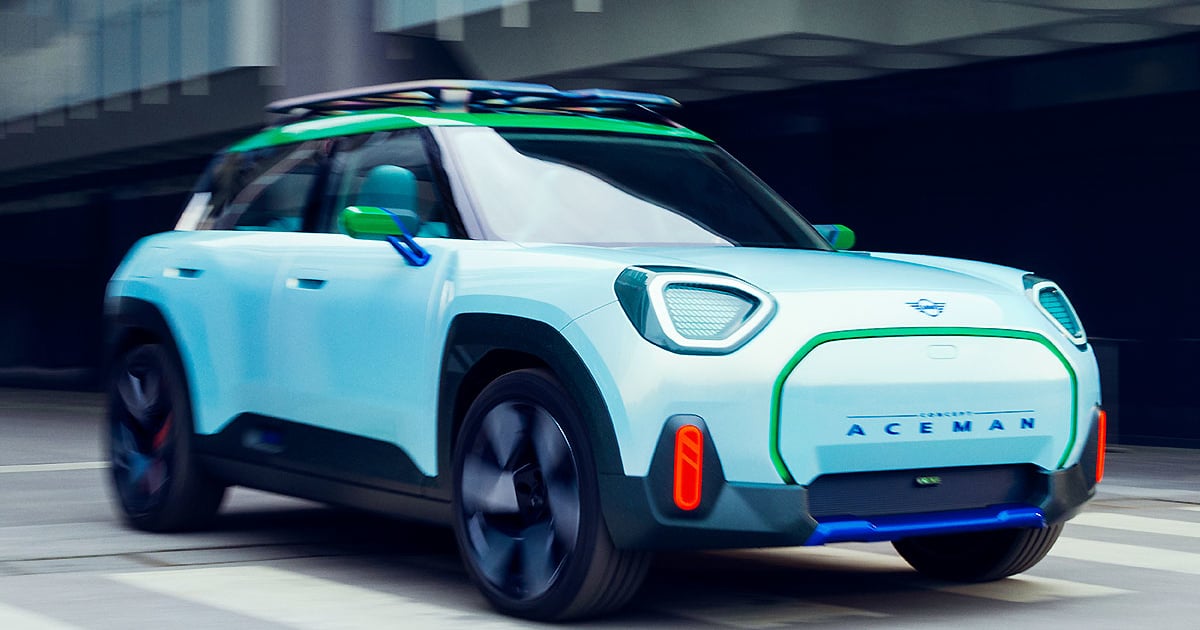
MUNICH — Mini will bring a pair of new battery-powered models to market next year as it races toward an all-electric future by the start of the next decade.
But geopolitics will keep them out of American garages for now.
That’s because the new subcompact crossover and two-door hardtop will be made in China and would be subject to a 25 percent U.S. tariff. Importing them would tack several thousand dollars onto their sticker prices.
But Mini has a plan.
“Either we find a way to produce [the models] at a lower cost standpoint, or we produce [them] in another region of the world,” Mini chief Stefanie Wurst said ahead of the Munich auto show last week. “We are well underway evaluating those cars for the [Americas] region.”
Michael Peyton, vice president of Mini of the Americas, said the automaker will announce a decision on the U.S. prospects in the fourth quarter.
“It’ll be good news for North America,” Peyton said. “We’ve got a plan to make sure we can bring those products to market at the right price points and from a business case that works for us and our dealers.”
Mini is considering production alternatives outside of China to build the products, Peyton told Automotive News at a launch event for the electric Countryman crossover.
“When you have significant tariffs from an import standpoint and from an overall manufacturing cost [perspective], we’ve got to address those,” Peyton said. “There’s some good things in place from a BMW Group standpoint that will particularly enable North America.”
Mini’s Oxford plant in Cowley, England, builds the brand’s iconic two-door and four-door hatchbacks and is said to be a favorite to land electric vehicle production in the near term.
The U.K. plant has an annual production capacity of 260,000 units and will operate at around 75 percent of that capacity this year, according to AutoForecast Solutions estimates.
But the BMW Group-owned brand is expanding its industrial footprint beyond the shores of Great Britain. Mini will build the next-generation Countryman in Germany, and the automaker will team up with Great Wall Motor Co. to build EVs in China.
The addition of North American output would help lift brand awareness and cost competitiveness in the world’s second-largest auto market.
While the drumbeat for North American production grows louder, a spokesperson said Mini hasn’t decided on localizing output.
But BMW Group’s recent multibillion investment in North American EV production and the Biden administration’s push to incentivize EV and battery manufacturing might help pave Mini’s way.
The small car maker’s ambitions to expand beyond its niche status in the U.S. also fuels the case for regional production. Mini is reorienting its portfolio toward larger crossover-style models that Americans prefer.
“Over the next handful of years, we will have all the right products in place, which allows us to get on this growth trajectory,” Peyton said. “So that starts to say, ‘Why have we never talked about any localized production opportunities?’ ”
The future product lineup includes crossover-type models tuned to American tastes.
Mini teased the China-made subcompact crossover in the Aceman, a four-door concept with short overhangs that maximize interior roominess in a compact exterior footprint.
A small electric crossover “ticks all the boxes,” Wurst said. “It is what we thought was missing in the range.”
John Secondo, general manager of Mall of Georgia Mini in Buford, Ga., said an electric subcompact crossover, which would fit below Mini’s volume Countryman, would expand consumer consideration for the urban brand in the U.S.
“A diverse and robust product line helps bring customers into showrooms,” Secondo said. “As Mini goes all-electric, we anticipate a future of EV models across more segments.”
While Mini lacks the North American volume by itself to support a standalone factory, the British marque has — through its parent company BMW — a pair of sprawling regional assembly plants to plug into. The factories have a combined annual production capacity of 625,000 units.
“The advantage of being part of the BMW Group is we can leverage some of those production locations,” Peyton said.
BMW is investing $1.7 billion to retool its 8 million-square-foot factory in Greer, S.C., to build six next-generation electric models by 2030.
And BMW is plowing $866 million in Mexico to produce high-voltage batteries and EVs. The $1 billion factory in San Luis Potosi will build the next 3 Series electric sedan and iX3 electric crossover.
The EV production infrastructure and ambitious growth targets for the region could make the case for Made-in-North America Minis.
“Before, it really wasn’t worth having the conversation because there was none of that happening,” Peyton said. “Now that the [BMW] group has said, “we’re accelerating into this,” we have the option to start asking those questions.”